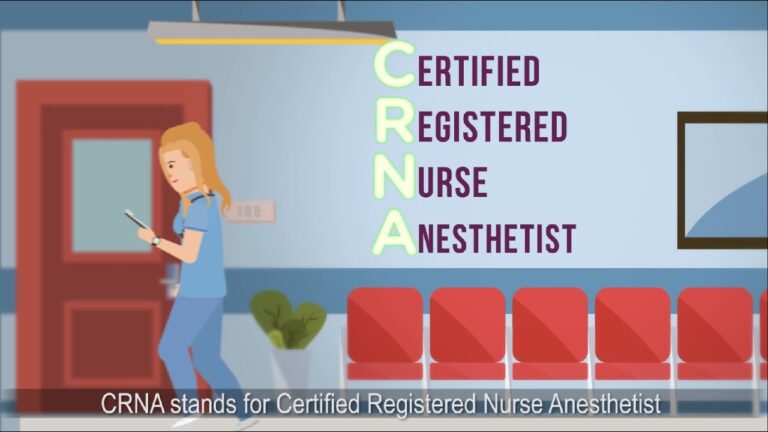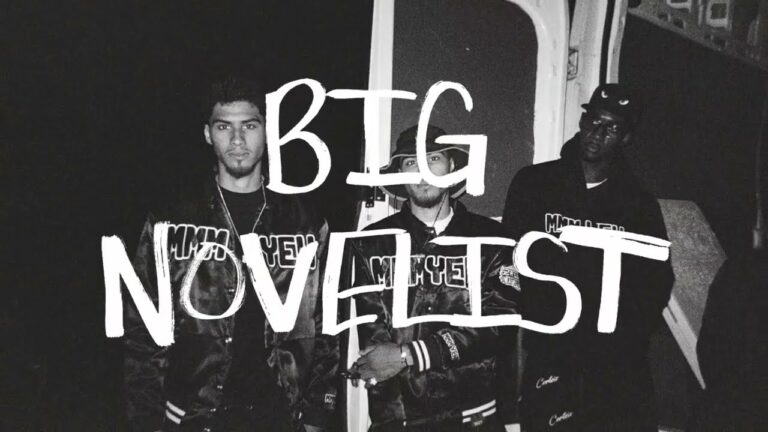Laughing Pays Well: Comedian Job Description and Salary
Comedian Job Description: A comedian is a professional entertainer who specializes in making people laugh through various forms of comedy such as stand-up, improvisation, sketches, or comedic acting. They create and perform original material, often drawing inspiration from everyday life situations, current events, or personal experiences. Comedians must have exceptional comedic timing, delivery, and the ability to engage and connect with different audiences.
Comedians typically perform in a variety of venues, including comedy clubs, theaters, television shows, and even corporate events. They may also appear in movies, sitcoms, or host their own comedy specials. Additionally, comedians may be required to collaborate with writers, directors, and fellow performers to enhance their comedic routines.
Comedian Salary: The salary of a comedian can vary greatly depending on their level of experience, popularity, and the type of gigs they book. Entry-level comedians or those starting out in the industry may earn around $20,000 to $40,000 per year. However, for established comedians who have gained recognition and built a solid fan base, the salary can range from $50,000 to several million dollars annually.
Comedians often supplement their income through additional sources such as merchandise sales, endorsement deals, writing for television shows or movies, or touring internationally. It’s important to note that the comedian’s salary can fluctuate significantly, as it is heavily influenced by factors such as market demand, booking frequency, and the success of their projects.

Comedian Job Description Template
Comedian Job Description
A comedian is a professional entertainer who uses humor to entertain audiences. They perform in various settings such as comedy clubs, theaters, television shows, and even corporate events. The main goal of a comedian is to make people laugh and provide an enjoyable experience.
Comedians typically write and perform their own material, which involves crafting jokes, stories, and humorous observations. They need to be skilled in delivering their jokes with proper timing, tone, and expression. Their performances often involve improvisation and interacting with the audience to create a lively atmosphere.
One of the important qualities a comedian should possess is a strong sense of creativity. They need to constantly come up with new and original material that resonates with different audiences. Additionally, they should have excellent communication skills, as they need to effectively engage and connect with their audience.
Comedians also need to have a good understanding of cultural and social issues to create relevant and relatable content. They often use satire and observational comedy to comment on everyday situations, politics, and other aspects of society.
A career as a comedian requires hard work, perseverance, and the ability to handle criticism. Comedians often start by performing in smaller venues and work their way up to larger stages. They may also need to travel frequently to perform at different locations.
In summary, a comedian is a professional entertainer who uses humor to entertain audiences. They rely on their creativity, communication skills, and ability to connect with the audience to deliver laughter and create a memorable experience for all.
Comedian Responsibilities
- Delivering laughter and entertainment to the audience.
- Creating original and unique content for performances.
- Adapting material to suit different types of audiences and venues.
- Being aware of and respecting cultural sensitivities and boundaries in comedy.
- Maintaining professionalism on and off stage.
- Engaging and interacting with the audience during performances.
- Continuously improving comedic skills through practice and experimentation.
- Staying up-to-date with current events and trends to incorporate into routines.
- Collaborating and networking with other comedians and industry professionals.
- Managing time effectively to fulfill performance commitments and obligations.
Comedian Requirements
- A strong sense of humor
- Ability to write and perform jokes
- Good observational skills
- Confidence in front of an audience
- Timing and delivery skills
- Improv and ad-libbing abilities
- Ability to connect with different audiences
- Stage presence and charisma
- Originality and creativity
- Ability to handle hecklers and unexpected situations
- Willingness to constantly learn and improve
- Ability to adapt to different performance settings
- Professionalism and reliability
How Much Does A Comedian Make?
Comedian Salary
| Comedian | Annual Salary |
|---|---|
| Kevin Hart | $59 million |
| Jerry Seinfeld | $41 million |
| Amy Schumer | $37.5 million |
| Trevor Noah | $28 million |
| Jim Gaffigan | $30 million |
In the world of comedy, the salaries of comedians can vary greatly depending on their popularity, success, and the platforms they perform on. The table above provides a glimpse into the earning potential of some of the top comedians in recent years.
At the top of the list is Kevin Hart, who earned a staggering $59 million in a single year. Known for his high-energy performances and successful movies, Hart has become one of the highest-paid comedians in the industry.
Following closely is Jerry Seinfeld with an annual salary of $41 million. Despite ending his iconic sitcom “Seinfeld” years ago, Seinfeld continues to earn a significant income through his stand-up performances and various business ventures.
Amy Schumer, known for her bold and unfiltered comedy, earned $37.5 million in a year. With successful stand-up specials and movie appearances, Schumer has established herself as one of the leading female comedians in the industry.
Trevor Noah, the host of “The Daily Show,” earned $28 million in a year. In addition to his work on the show, Noah also tours as a stand-up comedian, further adding to his income.
Jim Gaffigan, known for his clean and family-friendly comedy, earned $30 million in a year. Gaffigan has released multiple successful comedy specials and has a strong following for his relatable and humorous observations.
It’s important to note that these salaries can fluctuate year to year, and there are many other talented comedians who also earn a significant income from their craft. Comedy is a highly competitive field, and success in the industry requires a combination of talent, hard work, and luck.
Comedian Salaries by Country
Top Paying Countries for Comedian
| Country | Salary Range |
|---|---|
| United States | $30,000 – $5,000,000 |
| United Kingdom | £20,000 – £1,000,000 |
| Australia | AUD 50,000 – AUD 1,000,000 |
| Canada | CAD 20,000 – CAD 500,000 |
| Germany | €10,000 – €500,000 |
Comedians are among the highest-paid entertainers in the world. The United States is the top paying country for comedians, with salary ranges varying from $30,000 to $5,000,000. The United Kingdom and Australia also offer lucrative opportunities for comedians, with salary ranges of £20,000 to £1,000,000 and AUD 50,000 to AUD 1,000,000 respectively. Canada and Germany also provide decent earning potential for comedians, with salary ranges of CAD 20,000 to CAD 500,000 and €10,000 to €500,000 respectively.
A video on the topic Comedian
Video Source : 800 Pound Gorilla Media
Interview Questions for Comedian
1. How did you discover your passion for comedy?
I discovered my passion for comedy at a young age. I always loved making people laugh and realized that I had a talent for it. As I grew older, I started performing at local open mic nights and fell in love with the art of stand-up comedy.
2. Can you describe your writing process for creating jokes?
My writing process usually starts with observing everyday situations and finding the humor in them. I jot down ideas and then work on crafting punchlines and building a cohesive story. It’s a lot of trial and error, testing out jokes on stage and refining them based on audience reactions.
3. How do you deal with hecklers during your performances?
Dealing with hecklers is a challenge that every comedian faces. I usually try to handle them with quick wit and humor. It’s important to stay calm and in control of the situation while still making the audience laugh. Sometimes, ignoring them is the best approach, but occasionally I engage with them in a playful manner if it adds to the comedy of the show.
4. What has been your most memorable performance so far?
One of my most memorable performances was when I had the opportunity to open for a well-known comedian at a sold-out theater. The energy from the audience was amazing, and the laughter was contagious. It was a moment of validation and a reminder of why I love doing what I do.
5. How do you handle a joke that doesn’t land well with the audience?
When a joke doesn’t land well, it can be disheartening, but it’s important to stay focused and not let it affect the rest of the performance. I usually acknowledge the silence or lack of laughter with a quick comment or a humorous recovery. It’s all part of the learning process and not every joke will resonate with every audience.
6. Who are your comedic influences?
I have many comedic influences, but some of the biggest ones include George Carlin, Ellen DeGeneres, and Dave Chappelle. I admire their unique styles, storytelling abilities, and the way they can tackle serious topics with humor.
7. How do you handle stage fright or nerves before a performance?
Stage fright is something that most performers experience to some degree. To combat nerves, I usually practice my set multiple times beforehand, which helps build confidence. Deep breathing exercises and positive self-talk also help calm my nerves. Once I step on stage, the adrenaline kicks in and the nerves usually fade away.
8. What advice would you give to aspiring comedians?
My advice to aspiring comedians would be to keep writing, performing, and learning from every experience. It’s important to find your unique voice and style, and to not be discouraged by setbacks or tough crowds. Surround yourself with supportive people who believe in your talent and don’t be afraid to take risks.
9. How do you gauge the success of a performance?
The success of a performance can be measured in different ways. While audience laughter is a clear indicator, I also pay attention to the energy in the room and the overall response from the crowd. If people are engaged, enjoying themselves, and connecting with my material, then I consider it a successful performance.
10. What do you enjoy most about being a comedian?
What I enjoy most about being a comedian is the ability to bring joy and laughter to people’s lives. There’s a special satisfaction in knowing that I can make someone’s day a little brighter through comedy. It’s also a constantly evolving art form that allows me to express myself creatively and connect with audiences from all walks of life.
The Best Universities For The Comedian Profession.
- Harvard University
- University of Oxford
- University of Cambridge
- Stanford University
- Yale University
- Massachusetts Institute of Technology (MIT)
- California Institute of Technology (Caltech)
- Princeton University
- Columbia University
- University of Chicago






